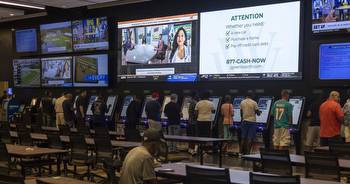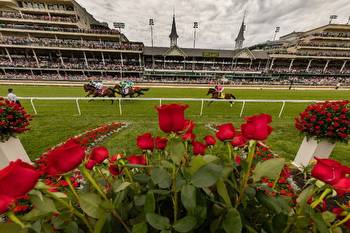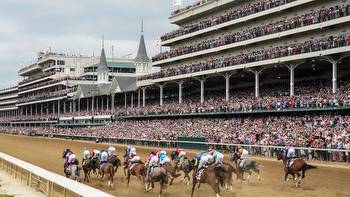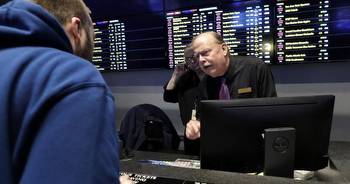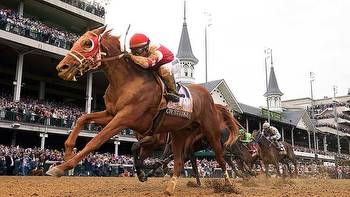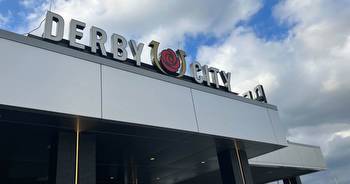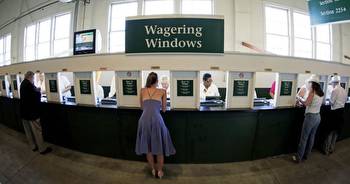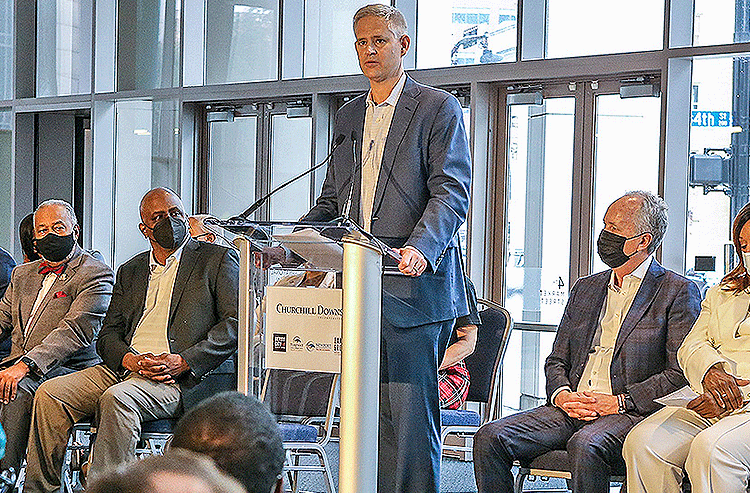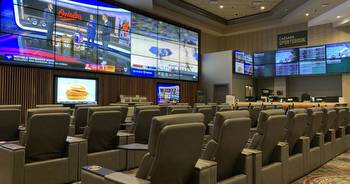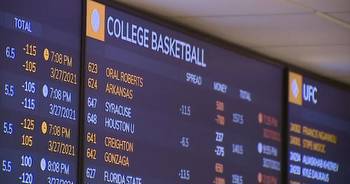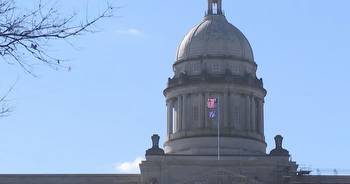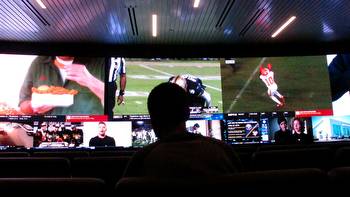How Kentucky gave horse tracks an 'infinite return' with sports betting law
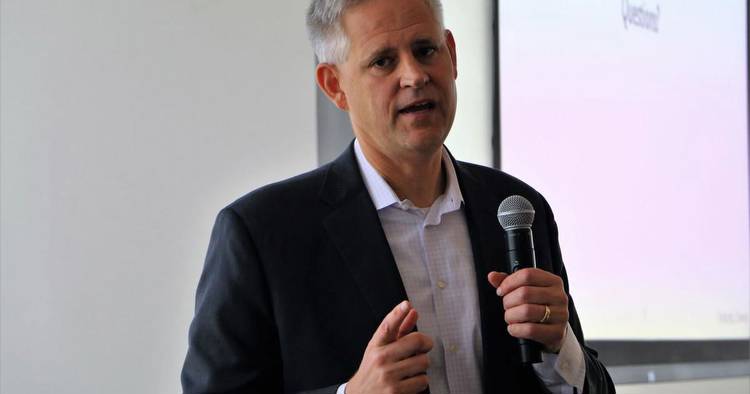
LOUISVILLE, Ky. (WDRB) -- When Kentuckians are finally able to legally bet on sports later this year, they might use an app such as FanDuel or Caesars Sportsbook to make a wager from the comfort of their living rooms.
But even if it's not apparent to the consumer, another company besides the app provider will get a piece of the money from that bet: one of the state's nine horseracing tracks.
When legalizing sports betting earlier this year, Kentucky's Republican-dominated legislature ensured that the horse tracks have a lock on the market: They are the only places allowed to have physical sportsbooks, and online operators such as FanDuel, DraftKings and Caesars are required to partner with one of the tracks to get a license to operate in Kentucky.
For the tracks, the economics of these online partnerships are compelling. The CEO of the state's biggest horse racing company — Churchill Downs Inc. — explained as much during a business luncheon in Louisville earlier this week.
"The online people — FanDuel, DraftKings — they have to come get licenses from Kentucky companies," Churchill Downs CEO Bill Carstanjen told the Kentucky chapter of the Association for Corporate Growth on Wednesday. "And we get a (revenue) share based on that. And if you think about that, that's an infinite return if you don't have any costs. We've just been awarded the license but we get a piece of all of their handle (the money placed on sports wagers) for those online platforms that we've partnered with."
Churchill Downs has already capitalized by tying up with FanDuel, though the companies haven't quantified the "revenue stream" FanDuel will provide to Churchill Downs.
This week, Keeneland Association announced that Caesars Sportsbook will be its partner for online wagering as well as its physical sportsbooks at its Lexington track and Red Mile historical gaming facility.
Speaking to WDRB News following his remarks Wednesday, Carstanjen said the "infinite return" partnerships with online sports wagering platforms aren't as lucrative as they might seem.
He noted that the Kentucky legislation, House Bill 551, provides each of the state's nine tracks with up to three online partnerships. That means there are more licenses to dole out than online platforms seeking them, since each online provider needs only one license to operate across the state.
"How many leading sports wagering platforms are there?" Carstanjen said. "You could argue five — not more than 10."
The surplus of licenses puts "enormous downward pressure" on the revenue sharing percentage that tracks can demand from the online platforms, Carstanjen told WDRB.
Carstanjen told the business group that sports betting — both the online and in-person components — is a welcome change for Kentucky, but it will not have a huge impact on the finances of the $11 billion company.
"In and of itself, it's not a big economic opportunity for our company, (but) we're glad to have it," he said.
Carstanjen said sports betting may help bring customers to Churchill Downs' casino-like gaming venues that offer slots-style historical horse racing games, and that Kentuckians have been clamoring for it since sports betting is legal in many neighboring states.
'Ridiculous form of market control'
Kentucky is the 37th state to legalize sports wagering, according to the American Gaming Association. And many of those states force online operators to give their local players — whether casinos, race tracks or sports stadiums — a cut of the action.
In Ohio, for example, licenses are awarded to casinos and professional sports teams, who can then partner with online providers. Arkansas went a step further, requiring its casinos to get at least 51% of the sports betting revenue, which drew complaints from online operators including BetMGM, DraftKings and FanDuel.
Still, the exclusive deal for Kentucky's horse tracks didn't go unnoticed when the legislature's majority Republican caucus debated the sports wagering bill earlier this year.
"For a legislature that prides itself on trusting the free market to take care of our economy, it is a ridiculous form of market control to help the one, primary incumbent in the gaming space in this commonwealth," said Sen. Whitney Westerfield, a western Kentucky Republican.
Westerfield, who has opposed expanded gambling in the state, said he doesn't know why his Republican colleagues structured the sports wagering bill favorably for the horse tracks, but he said the result speaks to the power of the industry.
"I feel like the horse racing industry is so entrenched that there was no way any other gambling activity was going to make it through the legislative process without their blessing," Westerfield said. "And so they could say exactly what their blessing cost."
Churchill Downs spent more than $43,000 lobbying the legislature, making it the 26th-biggest spender during the 2023 legislative session, according to state data.
Carstanjen said the company supported the sports wagering bill but "didn't lead" the effort. "We were not the champions of sports wagering," he said.
The bill was among the three pieces of legislation that the company acknowledged lobbying in its public disclosures.
Rep. Michael Meredith, R-Oakland, who carried the sports wagering legislation, said the tracks have always been viewed as a conduit for sports bets. That provision has been in previous versions of the bill going back years, he said.
The structure mirrors that of states where online sports betting is "tethered" by law to casinos, Meredith said.
"We're not a casino state. We're a horse racing state," he said. "... The 'big brother' piece of this — the tethering — is going back to the racetracks instead of to the casinos."
In previous versions of the sports wagering legislation, Meredith said the tracks were limited to one online partnership, meaning there could have been no more than nine online providers authorized in the state.
Now that a maximum of 27 online platforms is possible, Meredith said there is plenty of capacity for competition. There may be a dozen online platforms interested in accessing the Kentucky market, he said.
"We wanted to create an opportunity for expansion if some of the other folks wanted to get in the marketplace," he said.
Sports betting won't be legal until the Kentucky Horse Racing Commission sets up regulations and awards licenses.
That won't happen until "around football season," Carstanjen told the audience Wednesday.

